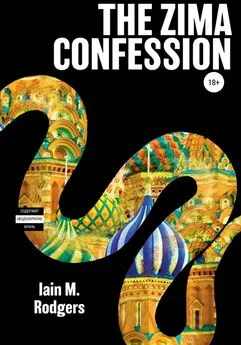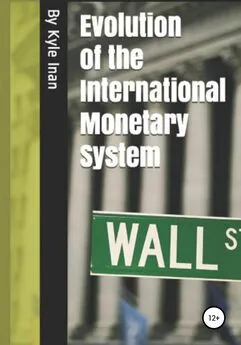Iain Rodgers - The Zima Confession
- Название:The Zima Confession
- Автор:
- Жанр:
- Издательство:неизвестно
- Год:2021
- ISBN:978-5-532-94751-1
- Рейтинг:
- Избранное:Добавить в избранное
-
Отзывы:
-
Ваша оценка:
Iain Rodgers - The Zima Confession краткое содержание
London 2013 – Richard is in London, working for a financial software company. He has held onto the Zima plan all this time and now knows how to make it succeed.
But does he know he’s fallen into a trap?
Содержит нецензурную брань.
The Zima Confession - читать онлайн бесплатно ознакомительный отрывок
Интервал:
Закладка:
“Stanmore!” a woman’s voice joyously exclaimed, waking Richard from his daydream.
“This train terminates at Stanmore,” the invisible woman continued.
The breathless glee with which she said the word “Stanmore” led Richard to assume it was one of her favourite places and she was very much looking forward to going back there. The Jubilee Line had an invisible woman to tell you what stations you were at, or were approaching. Soon the invisible woman breathlessly cried out “Baker Street”.
He was there. Baker Street. Almost home and safe to take a look at what he had.
“MIND… THE GHYEP!” a stern male voice boomed out from the walls of the station repeatedly as Richard pushed his way out of the carriage onto the bustling platform. The robot man warning everyone to “mind the gap” had obviously been educated in Eton or some such place. The calm, robotic repetition of this advice conflicted with the chaotic flurry of the crowds of people who gave no indication they were minding any gaps whatsoever.
During every tube journey, commuters were accompanied by invisible people offering all sorts of advice and warnings. The Jubilee Line woman was particularly posh and enthusiastic. Other lines had imaginary people of different temperaments or social backgrounds (the woman on the Docklands Light Railway serving Canary Wharf was surprisingly common compared with her customers).
Advertising vied for your attention too. There was a bombardment of excitement, beauty, witty advice, things to do, places to go. Your brain had to process visual information where what was real mingled with images from TV screens and posters, and auditory information where real people were shouted down by electronic people who had more important things to say.
In the shiny, synthetic, Brave New World of the near future, real and imaginary lives would become difficult to separate. People already existed as avatars; there was already a Sim World where people were becoming real millionaires for activities they undertook in an imaginary, computerised existence. Bitcoin too was accepted as a genuine currency and were increasing in value (though the Chinese had recently put a slight dent in that value). There was the Twitter-sphere. There was the whole Facebooking world of bullshit friendship. Richard himself had more than a hundred Facebook friends, though the only people he knew well enough to drink with were a handful of work colleagues.
In the near future, dreams, reality and simulation would intermingle freely (and all that before we even start to ‘experiment’ with drugs). What was to become of actual freedom? How would anyone know if they were really doing what they thought they were? How would people know if they really wanted to do the things they did or were guided by companies trying to make them behave in some way that would be beneficial to company objectives? People primarily existed as consumers to sell to, not as individuals or members of society.
Richard stepped through the heavy, darkly lustrous rosewood doors at the entrance of his apartment block, and then traversed a greying black and white marble floor. He pulled a manually operated lever to open the gold-coloured trellis doors of the lift and took the gracefully slow journey to the second floor. The lift travelled upwards inside a dusty, gold-coloured cage within a quarter-turn staircase. The solid wooden balustrade of the staircase was still polished like new; shiny and smooth to the touch. He was lucky to be able to afford to live here. VirtuBank paid well.
VirtuBank paid well, but not so well that Richard could live in the style for which the building had originally been designed. Richard liked to use the lift, though it was old and slow, so he wasn’t reminded that, though they had once been sumptuous, the carpets of the staircase were threadbare. The solid wooden balustrade was pitted and scored. In places it was patched with sections of mismatching wood. The elegant, family-sized apartments had long since been butchered – downsized, downgraded, divided up and converted into studios or one-bedroom flats. Each of the resulting dwelling places had been separated off from its neighbour by flimsy partition walls.
He entered his shabby, one-bed apartment. Here, all trace of the building’s original magnificence had been erased. Here, it was obvious that it was worn out, dirty and even disgusting. If it wasn’t for the memory it had been a five-minute walk from Baker Street and the entrance hall had made some effort at keeping up appear- ances, you might presume you were in a slum.
He stepped over a fresh scattering of junk mail and bills. He could collect that together later and add it to his growing pile of uninteresting, unopened mail. Right now he was eager to find out what he had.
16. Nightmare
It turned out that what he had was a password to the folders on the memory stick. What he had on the stick was some software and detailed instructions for its deployment.
Using his laptop, Richard began studying the instructions carefully. It looked like a good job, as though it had all been written to VirtuBank standards using their templates. All the correct documentation was there. They had also carefully imitated the Chennai English of VirtuBank’s own developers. There was a covering letter:
“Kindly find attached software patch PRX20-INT-101. This is a priority stand-alone patch with no dependencies. It fixes internally discovered software issue INT-101. Install immediately. Kindly requesting to carefully follow all below mentioned instructions and attachments, having firstly read through them, further to standard practices.
… etc. etc…
…in case of doubts kindly revert.”
He paused to think. It was clever that they had made it seem like it fixed an internal issue and not any issue the bank had discovered. “Priority” and “stand-alone” sounded good too. Fewer questions for the bank’s testing team to ask.
So, it seemed they had finally understood what he would be capable of doing – Operation Zima was what he had hoped for. He would have to install this software, which would harm the bank somehow. But was that good enough? His intention all along was to trigger revolution and destroy capitalism. Was Oldhams quite as important as that? Of course, it was his own enthusiastic messages that had signalled to them it was, but perhaps he had been over-optimistic. Now the software was right here on this USB stick, things felt different. He wasn’t prepared to risk his neck just to cause some inconvenience to one medium-sized bank, albeit a private bank that held the assets of some very wealthy people. Then again, whatever this was going to do, he had no one to complain to, or seek confirmation from. Mitchell was dead. He could send a message asking for help, but the message cycle took months. In any case, help had never been part of the plan.
Why on earth did they need him anyway? he wondered. The instructions didn’t explain any of that. He was annoyed at how little the instructions explained. He had been left to guess at what was going on.
But then he decided he was just making excuses to himself. Now that the plan was a reality, it was suddenly more frightening than he had anticipated. He continued to read carefully. When at last he turned to the final page of instructions, something caused him to frown.
At the bottom of the page in bold, enclosed in a red text box, was an advert for water-damaged rugs. Above the box was a note in large, bold text:
“Publish this advert in the usual way. Do not wait for the next date in the cycle. Publish immediately, with no alterations.”
Why would he have to do that? And did they expect him to copy this into the paper without even knowing what it said?
He spent thirty minutes decrypting the message hidden in the advert. It read:
“Continuing with plan as stated. Contact now only required if Ocyen or Vesna.”
He sat back and stared in disbelief at what he had decrypted. There should be no need for this message. What was going on? What on earth was this supposed to achieve?
Above all, why would Mitchell ask him to use code words, albeit encrypted, in his message? Perhaps it would be safer, now that he had the software, and now that Mitchell was dead, not to send any more messages at all?
But he had no choice. It was an instruction from his handler. He had to follow whatever instructions he was given. He logged in to his Evening Times account and bought a full-page advert for water-damaged rugs, for sale to trade only.
◆◆◆
Richard remembered Eddie’s prophetic words. He hoped they weren’t true:
“The thing is, push comes to shove, you won’t have the bottle, Richard. It won’t be as easy as you think.”
He was back in Eddie’s kitchen. Back breathing in the smell of chip fat, hearing the bittersweet jingle of a distant ice cream van making its way through the Council Scheme. Just Eddie and him, sitting on greasy wooden chairs either side of a small, fold-down table. It was the first meeting to discuss his plan.
He cringed to remember his lame, though sincere, reply: “What about when we threw the newspapers in the river?”
“Oh sure, that was you. It was all your idea. But that was just opportunistic. If I remember right, you were a bit drunk, staggering down the road with yer pals when suddenly the opportunity presented itself. One in the morning, big pile of Telegraphs, no one around but us.”
“Fair enough. It’s just an example.”
“Here’s ruh hing. What effect did it huv? No effect oan anythin’. Even if you’d stoapped the entire production of the Telegraph fur ivvur, what effect would that huv? Some sort ae sabotage is not goannie help us. Society’s stroanger ran nat.”
“I don’t agree. There’s a thin skin of civilisation. Scratch the surface and things get ugly. Take me for example. You always say that I’m pretty middle-class, and you’re right. But the thing is, I’m not happy. The thing is, there are thousands, maybe millions, of people like me. If someone could trigger something… get the people to wake up… who knows what could happen?”
◆◆◆
He had to be careful. This was all about detail. He checked everything again. The software pack really did look as though it had come from the dev team in Chennai. No difference at all, unless maybe the sequence numbers weren’t genuine?
Well they wouldn’t be unless they had managed to get fully qualified and capable programmers into Chennai.
There were probably other details that looked correct at first glance but would be fake.
If this pack was referred back to VirtuBank’s team in Chennai to be double-checked, it would be obvious it was fake.
His task would be to get this into the bank and ensure it didn’t get detected during testing or documentation and referred back for any reason.
The first problem was the software had to just turn up on-site and get installed. It wasn’t a download from the patch site. It bypassed that whole system and he needed a cunning excuse to have it accepted on-site. The first thing he would have to do was come up with that excuse.
17. Trade Only
Every year, Richard put a large advert in the local newspaper back in Glasgow. The advert was designed so that as few people as possible would be interested: fire-damaged goods; water-damaged furniture; second-hand (and obsolete) electronic goods. For sale to trade only. He put his own phone number as the contact. If anyone did happen to be interested in the advert and rang him, he would apologise and explain that someone had already agreed to buy the whole lot. He never had to apologise to very many disappointed customers.
Читать дальшеИнтервал:
Закладка:










